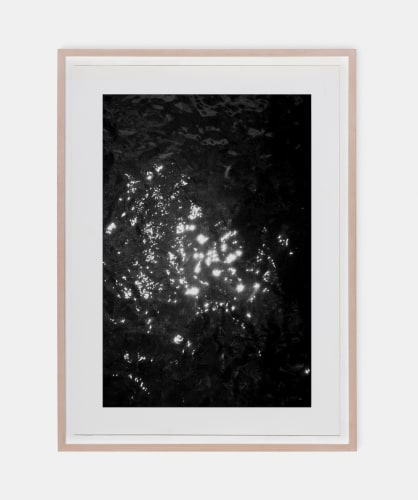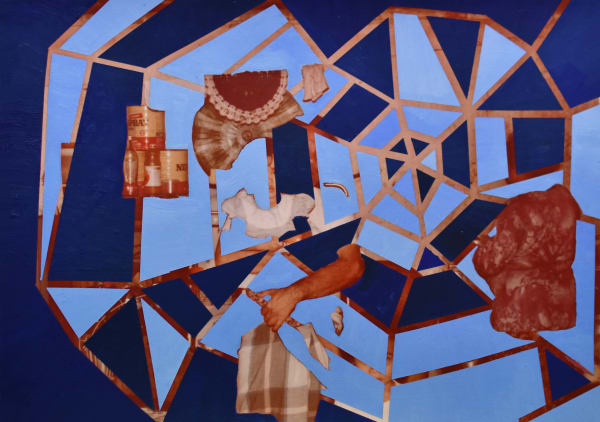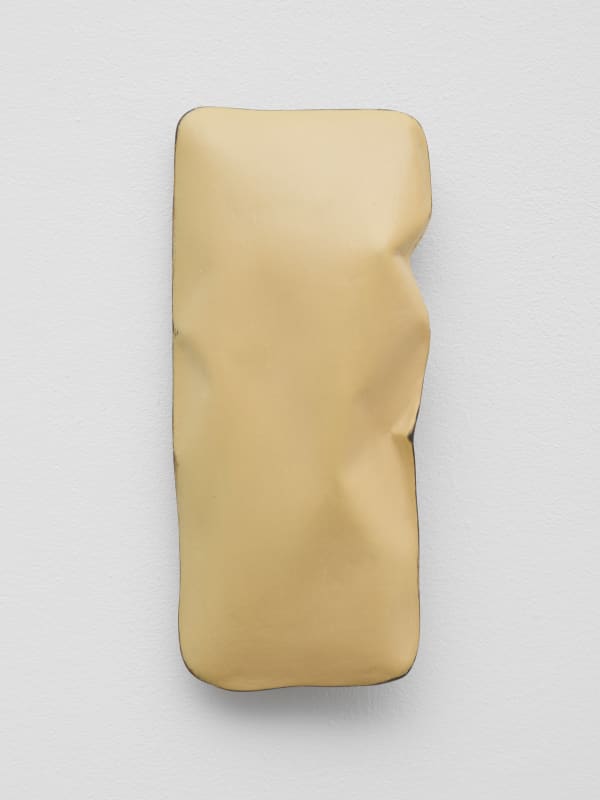The works in glimmers itself are vignettes, portraits of a juncture that implicates transience and yet, interconnectivity.
Haffendi Anuar’s webbed work positioned at the top corner of the alcove seating mimics a spider’s scaffolding poised, at the ready to ensnare and entangle flying prey. The attachment of such silk fibres, in this case, foregrounds a two dimensional architecture enclosing memories in sepia [tins of Nestle Nespray, nenek’s baju (grandmother’s outfit), a limb, a traditional Malay sarong, a child’s pinafore] intersected by swatches of colour [royal and mayan blue]. Elements of autobiography sourced from a found family photo nod towards the archive and present.
In WeiXin Quek Chong’s snub lick, soft creamy folds reveal forms that are erotic in their lack of specificity: smooth outlines of curls, powder blush textures and smudges of saccharine adorn the tile-size photograph [18x20cm]. In caressing notions of tactility and gender, the image simultaneously emerges before retreating back into its frame.
Jeremy Everett’s canvas has an edge bleed in purple and is laced with a delicate pink gauze. Beneath, the imprint of the words read: Maybe Maybe Not. Peinture à l’email sur aluminium. The painting imbues a sense of irreverence, celebrating both the minimal and ethereal. Multiple puncture marks on the canvas reveal the effect of material and reconcile a process-orientated creation. Everett explores how images can live on their own accord - changing, developing, decaying or evolving beyond the artist’s control or original intention.
For Mayumi Hosokura, the curved outlines of bodies, almost androgynous are shown as a series unveiling the timelessness and fragility of humanity. Cast in signature colour hues, the collage works are photographic studies.
Fiona Ones’ works are sat perched on the tiled edge in the far corner of the gallery space. Sparks Ocean hints at the depths beneath an inky watery surface which glimmer in the sunlight. Here, it echoes the now vacuous volume of the swimming pool and reflection from the incoming rays from the skylight situated above and striking the polished flooring surfaces. The creases and wrinkle lines in Empty Advertisement belie a worn history and neglect of its previous proprietor.
Johan de Wit sculptures are made from paper, resin and acrylic. Their upright bodies and crumpled indentations strike a melancholic and humourous tone, whilst hinting at comfort and care. De Wit's still life borrow from art history, but his work remains enigmatically poetic and elusive.












